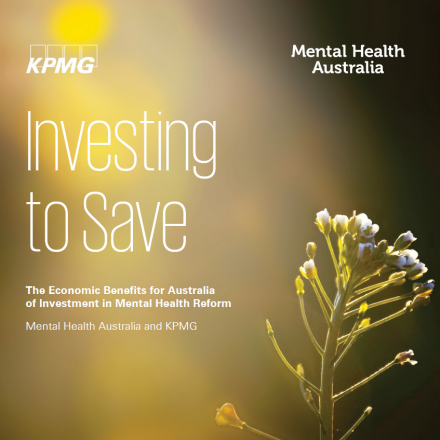Not just another research question
 Article by Susan Murray, CEO Suicide Prevention Australia
Article by Susan Murray, CEO Suicide Prevention Australia
In a recent presentation at the Hunter Institute for Mental Health, international suicide prevention expert, Dr Morton Silverman, said “Research is still primarily focused on risk factors and epidemiology. We don’t need more research in those areas. We need to implement what we know already, test its efficacy and then invest in new questions that arise from this important work.”
In Australia, does this statement ring true? Yes, it does.
In this country we have excellent researchers and research groups who are undertaking and publishing ground-breaking and internationally recognised work in the area of health and wellbeing.
We also have a raft of inspirational suicide prevention programs being run by organisations big and small, at National, State and community level.
So what’s the problem?
The problem is that we are not consistently putting into practice what we have learned from research. In order to really make an impact on the frontline, in our communities, we must implement research, evaluate whether or not it worked and if it worked, keep doing and share those lessons with others. If it didn’t work, why not? Did part of it work? Could it work in conjunction with another proven strategy? What is the next research question that follows on from this experience and how can it be implemented?
We are not consistently evaluating what we have implemented. Most importantly, we are not advising researchers of areas of highest risk and highest potential for reduction in suicides so they can focus their attention where it will have greatest impact.
Surely this is a case of the sum being greater than its parts.
The National Coalition for Suicide Prevention, led by Suicide Prevention Australia, is committed to reducing suicide deaths in Australia by 50% in ten years. This group recognises that to achieve this ambitious goal we need to take collective action. Part of this is about directing our research energy, intellect and funding where it is needed most, in order to deliver the best return on our investment.
We have a common goal that can be translated into research principles and priorities for suicide prevention. This is a daunting task but one that is doable if we work cross sector with researchers, those with lived experience and those managing our support services. We need to bring together public, private and community sectors in a well-planned and coordinated approach to address this complex social problem.
But, once that focus and direction is clear, what then? How do we ensure we do not get distracted from reaching that shared goal? How can we ensure that scarce research dollars will be directed to the right investments that will contribute to a significant reduction of suicide deaths?
Funding for research is highly competitive. There are many varied and worthwhile causes needing to gain a strong evidence base on which to develop programs and activities.
Regardless of where funding comes from for a suicide prevention research question, we believe it must be given on the condition that it contributes to Australia’s defined priorities for suicide prevention. This sector must lead from the front and advise funders what we need to know. They need clear guidance so they can make informed judgements on what to fund, ensuring it makes a positive impact to suicide prevention in this country and is not just another discrete part of the puzzle.
What about that poor researcher struggling for funding for their question about suicide prevention, I hear you say? It’s simple. We are not in the business of funding development of collective knowledge for knowledge sake. We are in the business of reducing suicide deaths in this country.
Yes, answering some of life’s questions and human dilemmas is of interest and we must always leave room for innovation. But, not at the expense of the lives of our people. We must align the research questions we ask to the areas where most lives are being lost.
The National Research Action Plan for Suicide Prevention
Suicide Prevention Australia is leading on a cross sector project to develop The National Research Action Plan (NRAP) for Suicide Prevention. This will deliver a blueprint for suicide prevention research most relevant to the Australian context. The NRAP is being developed with the support of the National Coalition for Suicide Prevention and to date has involved researchers, services suppliers, lived experience representatives and funders. Suicide Prevention Australia aims to launch the plan on World Suicide Prevention Day (10 September 2015).
__________“In 2009, I led a research team that looked at research priorities in suicide prevention. I am delighted to see Suicide Prevention Australia making practical use of this study as part of a drive for nationally coordinated change in suicide prevention research.” Professor Jane Pirkis (Centre for Mental Health, Melbourne School of Population and Global Health, The University of Melbourne, Melbourne, Australia) as quoted in the 2014 SPA Annual Review.
Do you have a comment on this story? Join the conversation on Twitter @AUMentalHealth


 Article by Susan Murray,
Article by Susan Murray, 

